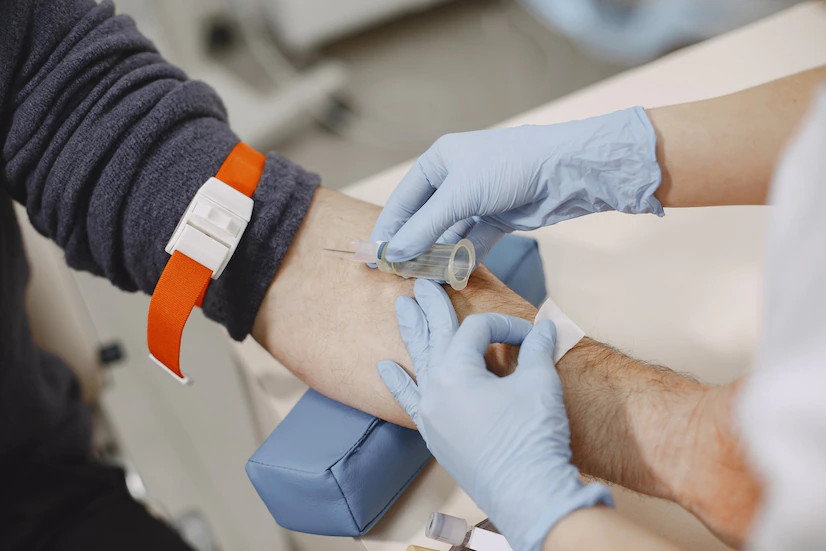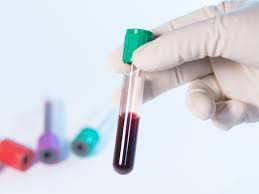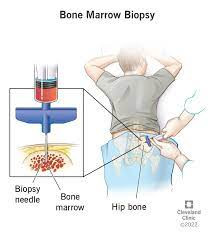Definition
An HSV antibody test determines whether an individual has been exposed to the herpes simplex virus. It is a blood test that identifies specific antibodies in the body. Antibodies are immune system proteins that fight pathogens, such as viruses or bacteria. This test identifies the presence of antibodies to HSV-1 or HSV-2, the two types of herpes viruses.
The body begins producing HSV-1 or HSV-2 antibodies approximately 18 to 21 days after initial infection. Two primary types of antibodies are produced: IgG and IgM. IgG is the most prevalent antibody, while IgM is the first to appear during an initial infection. Both antibodies can be detected in blood and other body fluids.
The herpes simplex virus causes infections in humans, with HSV-2 accounting for approximately 491 million cases globally, representing 13% of people aged 15 to 49.
HSV spreads through direct contact, such as during sexual activity or childbirth. Individuals with weakened immune systems, such as those with HIV/AIDS, may experience more severe conditions. The herpes IgM test is a straightforward blood test with results typically available within a week.
Indications
Doctors may recommend an HSV antibody test for various reasons, including:
- Persistent symptoms despite a negative test for active infection
- Recent exposure to the virus without symptoms
- Pregnancy or planning to conceive
- High risk of HIV or an existing HIV diagnosis
Contraindications
There are no specific contraindications preventing a person from undergoing this test.
Preparation Before the Test
You may be asked not to eat or drink for 12 hours before the test. Certain types of medications can affect the results of this test. Your doctor will tell you if you need to stop taking certain medications.
- Some things to consider before having this test include:
- This test can be done to confirm that someone has herpes after they have had a recent outbreak
- HSV2 IgM is one of the first types of antibodies to appear after infection, so this blood test is an early test that can be used to detect herpes
- Herpes IgM antibodies can take up to 10 days to develop after primary infection with the virus
- If you think you have been exposed but have no symptoms, you should wait at least two weeks before having the test
Test Procedure
This test is performed by taking a blood sample. A needle is inserted into a vein in your arm or hand to collect the sample. Once the blood is drawn, the puncture site is covered with a bandage. You can resume your usual activities immediately afterward. Side effects are rare but may include mild bruising or discomfort at the injection site, which typically resolves quickly.
The process of drawing blood can vary in difficulty, as vein and artery sizes differ between individuals and even between different sides of the body. For some people, it may take more effort to collect the sample.
Although rare, there are potential risks associated with blood sample collection, such as:
- Excessive bleeding
- Feeling faint or dizzy
- Multiple attempts to locate a vein
- Hematoma (blood accumulation beneath the skin)
- Infection
Normal and Abnormal Values
The results of the HSV-2 IgM test are generally categorized as positive, negative, or equivocal.
- A positive test result means that HSV-2 IgM antibodies are present in the sample, indicating an active herpes virus infection.
- A negative test result indicates no detectable IgM antibodies and suggests that the herpes virus was not present at the time of testing.
- An equivocal result implies that the test could not confirm whether antibodies were present or absent, which makes the outcome inconclusive.
Results and Recommendations (Further Testing)
If you are not routinely screened for sexually transmitted infections (STIs), it is recommended to retest six months later to increase the likelihood of identifying any missed infections. Discuss with your doctor about the timing of the next test and whether additional tests are necessary.
Consult the Right Doctor
For adults, the results of the HSV-2 IgM test should be discussed with a general practitioner, who can perform further tests or start appropriate therapy based on the diagnosis. Additionally, you may consult a dermatologist or venereologist to address your condition comprehensively.
Interested in learning more about laboratory, radiology, and other test results? Click here!
- dr. Monica Salim
VeryWell Health - What Does a Positive Herpes IgM Test Result Mean> (2023). Retrieved 28 May 2023, from https://www.verywellhealth.com/what-does-a-positive-herpes-igm-test-result-mean-3132739#toc-how-are-the-results-interpreted
WebMD - What is a Herpes Simplex Virus Antibodies Test (IgG and IgM HSV)? (2021). Retrieved 28 May 2023, from https://www.webmd.com/genital-herpes/what-is-herpes-simplex-virus-antibodies-test
World Health Organization (WHO) - Herpes simplex virus. (2023). Retrieved 28 May 2023, from https://www.who.int/news-room/fact-sheets/detail/herpes-simplex-virus











